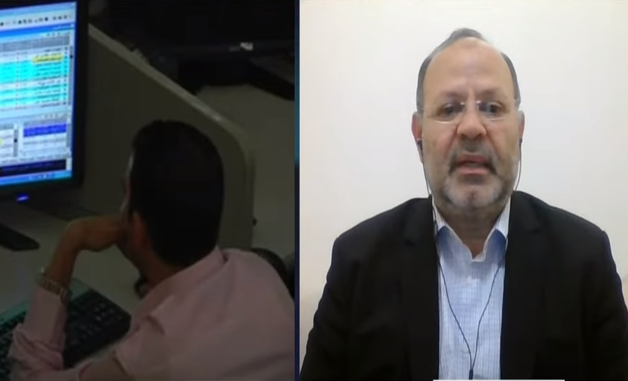Economic expert Abdel Hafez El-Sawy said that the Egyptian government does not have any vision to address the issue of public debt, and all it is doing is escaping forward from confronting the real problem by replacing short-term debt with long-term debt by consuming old debts with new debts.
He explained during a meeting on Al Jazeera Mubasher that the debt has exceeded the accepted rates for several years. It is customary for the public debt as a whole to be no more than 60% of the gross domestic product, while it has now reached in both parts of the country to 125%, which are ratios that have a very large impact on the structure of the state’s general budget Only benefits without premiums is the largest provision within the six chapters.
He stressed that loans, unless directed to productive and development investments, are a burden on current and future generations, and not directed to construction, bridges and tunnels, just as Egypt never needed a new administrative capital that cost billions and contributed $40 billion in external public debt at the expense of the education and health sectors.
He added that the Egyptian government does not have a repayment program at all and has not announced a short or long term to get rid of a certain percentage of the debt, but this matter is not on the government's agenda at all. Rather, Egypt has been involved in the agenda of the International Monetary Fund, which promotes the concept of "debt sustainability" meaning Continue to borrow as long as you are able to repay.
Economist: The Egyptian government does not have any vision to address the issue of public debt, and all it is doing is escaping forward pic.twitter.com/o5AeHesymc
- Al Jazeera Mubasher (@ajmubasher) June 30, 2021
He explained that the matter can be accepted if the payment is made through self-resources or renewable revenues from development projects, "but we borrow and repay through new loans, and this is a very big implication."
He added that the last statement of the International Monetary Fund pointed to the danger of public debt on the financial situation in Egypt, because the state's general budget is primarily consumerist, and investments in it are limited and directed to construction that does not create permanent job opportunities.
He pointed out that “there is a severe inability to pump investments in the agricultural and industrial sectors, despite the increase in the population, which made us unable to provide food. Egypt has a deficit in the trade, agricultural and food balance amounting to about $9 billion and dependence on imports from abroad, in addition to the problems associated with the construction of the Renaissance Dam.” .
He said that Egypt has neither an economic nor a development vision nor a vision to deal with issues of debt, unemployment and poverty. Even the “Solidarity and Dignity” program that was aided by the World Bank was not self-motivated by the Egyptian government to support the poor.
He pointed out that there is misallocation and misuse of the state's general budget resources and the army's control over the capabilities of the economy, which leads to more unemployment and poverty for the citizen.
He added that the citizen has been bearing taxes at high rates, reaching more than 300% since 2014, in return for weak services, in addition to bearing the cost of electricity consumption at international prices, as well as the case with fuel, which has increased the number of poor families to about 8 million, of whom only 3 million benefit from the solidarity program. .
Will the government in #Egypt stop the policy of borrowing to bridge the budget deficit?
pic.twitter.com/0mCYdsDue1
- Al Jazeera Mubasher (@ajmubasher) June 30, 2021
As for the economic researcher, Alaa Abdel Halim, he demanded that there be a special committee on debts affiliated with the Prime Ministry, in which Parliament would participate and be informed of everything related to those loans, in addition to the quality of the indebtedness, whether for the cost of the debt or its plan, and for Egypt to announce a plan to repay these debts.
He said during an intervention on Al Jazeera Mubasher, that the Egyptian government is trying to preserve the largest mass of foreign debt through international institutions because they are long-term loans and at a lower repayment cost, and it is trying to be present in the global borrowing markets by offering short and long-term bonds, but Parliament oversight is required in Either way.

